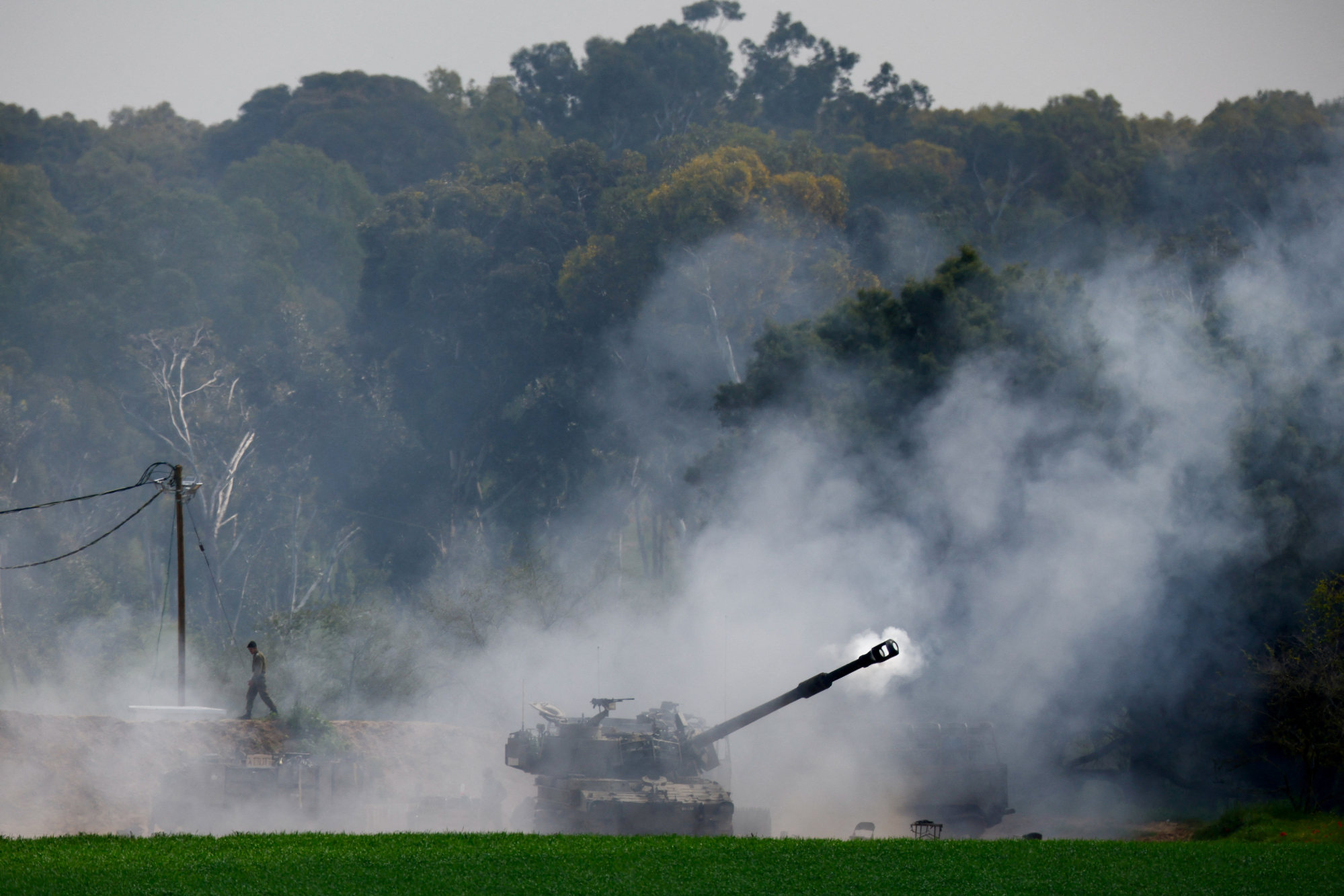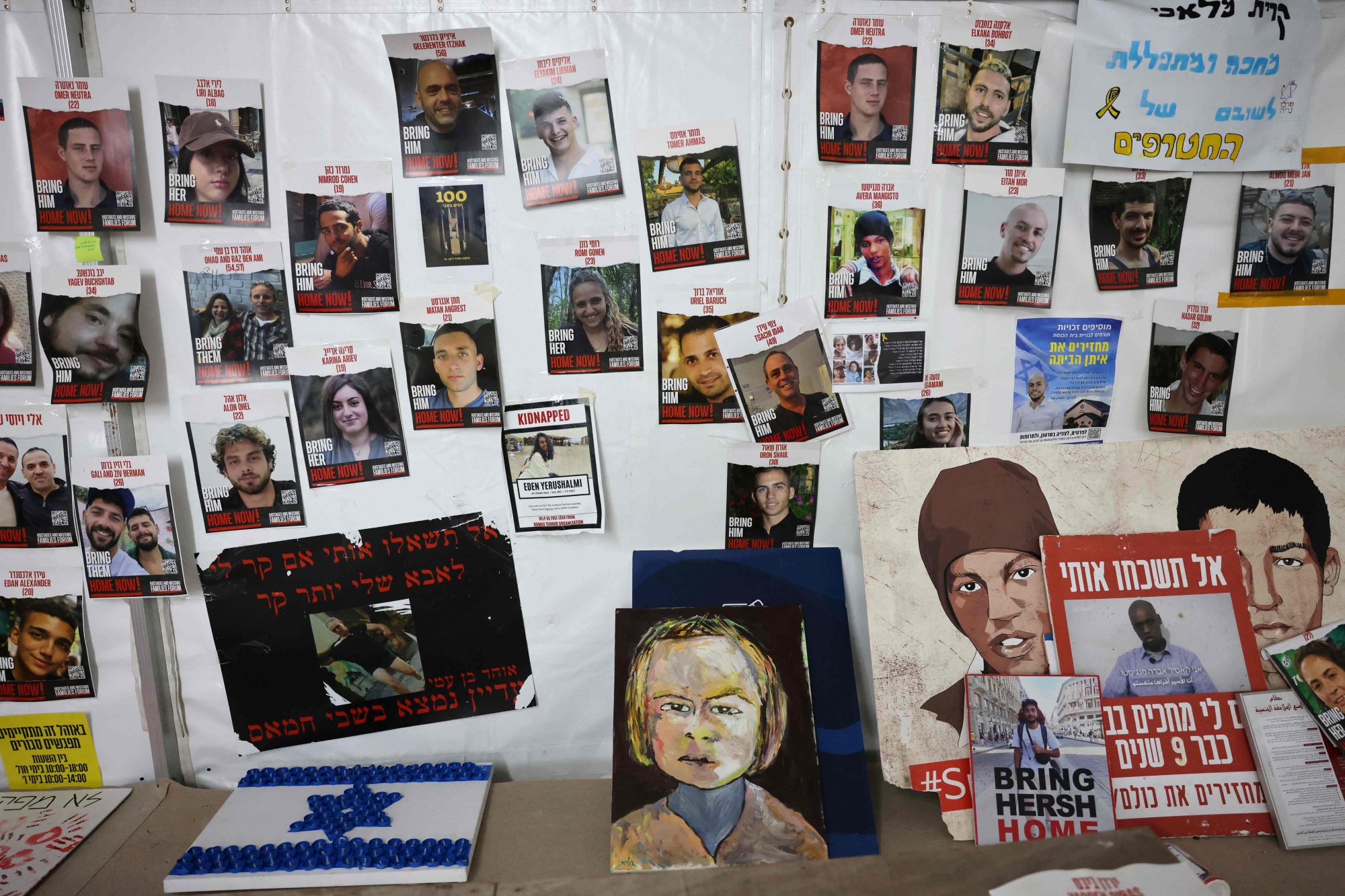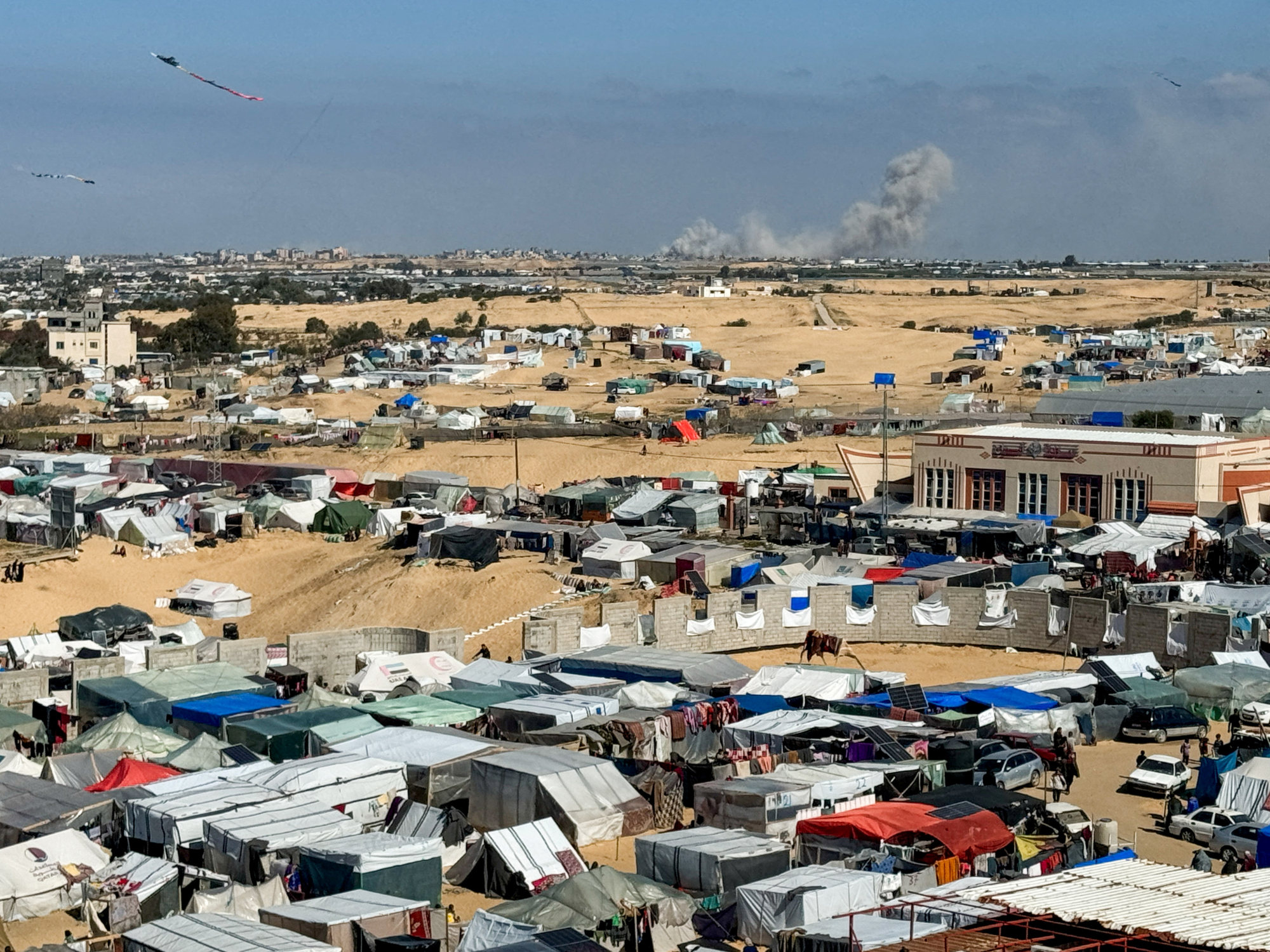Israel’s Channel 12 television reported on Thursday that the war cabinet had approved sending negotiators, led by the head of Mossad intelligence service David Barnea, to Paris on Friday for talks on a potential deal to free more than 100 hostages kidnapped from Israel in October whom Hamas is still believed to be holding.

CIA Director William Burns, Qatar’s Prime Minister Sheikh Mohammed bin Abdulrahman Al Thani and Egyptian intelligence chief Abbas Kamel will also participate in the Paris meetings, the source said on Thursday.
Earlier on Thursday, Israel’s Defence Minister Yoav Gallant said the country’s hostage negotiators were being given expanded authority.
Israel strikes Gaza’s Rafah as truce talks under way
Israel strikes Gaza’s Rafah as truce talks under way
The urgency of diplomatic efforts appeared to be increasing ahead of the month-long Islamic holiday of Ramadan, which begins on March 10.
“We’re focused intensely on trying to get an agreement that results in the release of the remaining hostages and that produces an extended humanitarian ceasefire”, US Secretary of State Antony Blinken told reporters in Brazil.
US Middle East envoy Brett McGurk held “constructive” meetings in Egypt and Israel including with Netanyahu on Thursday, White House national security spokesperson John Kirby said at a briefing.
Blinken said he, Burns and McGurk were “in constant communication and working every aspect of this”.
Sami Abu Zuhri, a senior Hamas official, told Reuters that Israel was responsible for the lack of progress and was backtracking on terms it accepted weeks ago in the prior ceasefire proposal. “The (Israeli) occupation is not interested in achieving any agreement,” he said.
There was no immediate response from Israeli officials. Netanyahu has said that if Hamas were to show flexibility progress would be possible.

A little after midnight on Friday, Hamas said Haniyeh ended his three-day visit to Cairo where he met with Kamel.
They discussed ending Israeli aggression, aid for civilians in Gaza, returning displaced people to their homes, especially in north Gaza, and the exchange of hostages for Palestinian prisoners in Israel, the group said in a statement.
Israel launched its campaign in Gaza after Hamas militants who control the territory stormed through Israeli towns on October 7, killing 1,200 people and seizing 253 hostages, according to Israeli tallies.
US blocks ceasefire call with third UN veto in Israel-Gaza war
US blocks ceasefire call with third UN veto in Israel-Gaza war
Since then, nearly 30,000 people have been confirmed killed in Gaza, according to health authorities, with thousands more feared dead under ruins.
Hamas says it will not release remaining hostages unless Israel agrees to end fighting and withdraw from Gaza. Israel says it will not pull out until Hamas is eradicated.
In Khan Younis, the Gaza Strip’s principal battlefield for the last month, Israeli forces raided Nasser Medical Complex on Thursday shortly after withdrawing from it, the Palestinian enclave’s health ministry said.
The World Health Organization earlier said it aimed to evacuate some of the roughly 140 patients stranded there. Palestinian officials have said bodies of dead patients have begun to decompose amid power cuts and fighting.
Israel gave no immediate comment.
In Rafah, where over half of the enclave’s 2.3 million people are huddled, mostly in tents, mourners wept on Thursday over at least seven corpses in body bags, laid on cobbles outside a morgue.
Israel weighs Eichmann-style public trials for October 7 attackers
Israel weighs Eichmann-style public trials for October 7 attackers
Gaza health authorities said at least 120 people were confirmed killed and 130 wounded in the last 24 hours of Israeli assaults, but many more victims were still under rubble.
Rafah’s al-Farouk mosque was flattened into slabs of concrete, and the facades of adjacent buildings were blasted away.
Residents said bombing on Wednesday night had been the heaviest since an Israeli raid on the city 10 days ago that freed two hostages and killed scores of civilians.

“We couldn’t sleep, the sounds of explosions and planes roaring overhead didn’t stop,” said Jehad Abuemad, 34, who lives with his family in a tent. “We could hear children crying in nearby tents, people here are desperate and defenceless.”
The head of Medecins Sans Frontieres told the United Nations Security Council in New York that children are traumatised.
“These psychological injuries have led children as young as five to tell us that they would prefer to die,” said Christopher Lockyear.
Israel has threatened to launch a full-blown attack on Rafah, the last city at Gaza’s southern edge, despite international pleas – including from its main ally Washington – for restraint.
Residents who have fled to Rafah from elsewhere say there is nowhere left to go. Meanwhile, an already meagre aid flow has almost completely dried up.
Additional reporting by Associated Press

